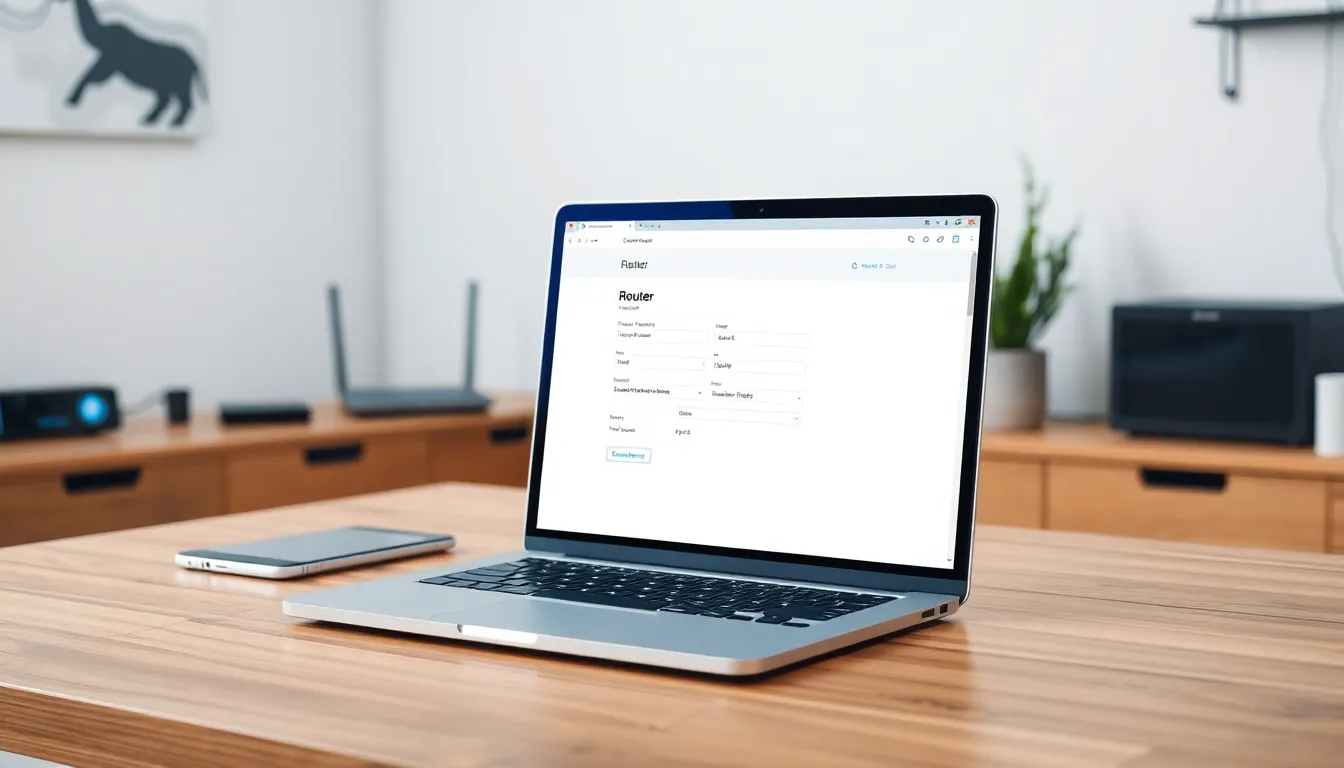Table of Contents
ToggleIn a world where smartphones have become extensions of our very selves, getting your mobile app noticed is like trying to find a needle in a haystack—if that haystack were on fire and filled with other needles. With millions of apps competing for attention, mastering SEO for mobile apps isn’t just a nice-to-have; it’s a must. Imagine your app soaring to the top of the charts while others languish in obscurity.
Understanding SEO For Mobile Apps
Optimizing for mobile app SEO is crucial in a competitive market. Effective strategies ensure an app stands out among countless options.
Importance Of SEO For Mobile Apps
SEO for mobile apps enhances visibility in app stores, leading to higher download rates. Greater visibility directly correlates with increased user engagement. Research indicates that 70% of app users find new apps through search in app stores. Developers recognize that strong app optimization contributes to improved brand reputation and higher retention rates.
Key Differences Between App SEO And Web SEO
App SEO differs significantly from web SEO in focus and methodology. App store optimization prioritizes keywords related to app features and user intent. On the other hand, web SEO involves strategies like backlinks and content marketing. Additionally, app stores use rankings based on user ratings and download frequency, unlike web search engines that consider page relevancy and quality. Understanding these distinctions helps developers tailor their optimization efforts effectively.
Key Components Of SEO For Mobile Apps

Mastering SEO for mobile apps involves focusing on specific components that enhance visibility and drive engagement.
Keyword Research Strategies
Effective keyword research is essential for optimizing mobile apps. Identify relevant keywords that potential users search for in app stores. Use tools like Google Keyword Planner or App Annie to discover trending keywords and phrases. Analyzing competitor keywords provides insights into high-performing terms. Concentrating on long-tail keywords often leads to better results since they cater to specific user needs. Prioritize keywords that reflect the app’s features and user intent to improve ranking positions.
On-Page Optimization Techniques
On-page optimization for mobile apps directly impacts search visibility. Start by crafting compelling app titles that include primary keywords. Use persuasive descriptions to highlight key features and functionalities, ensuring it resonates with user queries. Incorporate relevant keywords naturally throughout the app description while maintaining readability. Utilize eye-catching visuals, such as screenshots and icons, to attract potential users. Regularly updating the app with new content and features also boosts its relevance, enhancing user engagement and retention.
App Store Optimization (ASO)
ASO plays a crucial role in enhancing mobile app visibility and driving downloads. Effective optimization strategies distinguish an app in a competitive marketplace, especially since 70% of users discover new apps through app store searches.
Importance Of ASO In Mobile SEO
ASO significantly influences overall app visibility. Improved rankings lead to higher download rates, making ASO a vital element in mobile SEO. An optimized app attracts users actively searching for specific features, aligning user intent with app functionality. Enhanced visibility in app stores correlates with better user engagement and retention, solidifying ASO’s impact.
Factors Influencing ASO
Several key factors influence ASO effectiveness. App title plays a primary role in conveying its purpose and attracting clicks. Keyword relevance directly affects search rankings, so including targeted keywords within the app description is essential. Visual assets like icons and screenshots also capture user interest, impacting conversion rates. Regular updates showcase ongoing app improvement, signaling to potential users that the app remains current and user-friendly.
Tracking And Analyzing SEO Performance
Measuring and analyzing SEO performance is vital for mobile app success. Effective strategies help developers refine their approach and boost visibility.
Tools For Measuring SEO Effectiveness
Various tools assist in evaluating SEO effectiveness. Google Analytics tracks user engagement and reveals traffic sources. App Annie provides insights into competitor performance, allowing for strategic adjustments. Sensor Tower helps in monitoring keyword rankings and app visibility trends. These tools enable developers to gather vital data for informed decision-making.
Metrics To Monitor For Success
Essential metrics guide the assessment of SEO performance. Download rates indicate user interest, while active users reflect retention levels. User ratings and reviews provide feedback on app performance and enhance credibility. Additionally, estimating conversion rates shows how effective app store elements are in attracting users. Monitoring these metrics consistently empowers developers to optimize their apps for greater impact.
Mastering SEO for mobile apps is essential for developers aiming to thrive in a crowded marketplace. With effective optimization strategies in place, apps can achieve greater visibility and attract more users. By focusing on relevant keywords and enhancing app store presence through ASO, developers can significantly boost download rates and user engagement.
Regularly tracking performance metrics allows for informed adjustments that keep apps competitive and relevant. Ultimately, a well-executed SEO strategy not only helps an app stand out but also aligns it with user intent, ensuring it meets the needs of potential users. Embracing these practices is key to achieving lasting success in the mobile app landscape.





